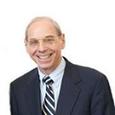I caught about ten minutes of "CNN Heroes: An All-Star Tribute" on CNN the other night, and found it to be more than just a bit interesting. I happened to tune in when some woman (no clue as to who she was) was presenting an award to Zach Petkewicz, a Virginia Tech student credited with saving the lives of his fellow students when gunman Seung-Hui Cho was trying to break into their classroom at Norris Hall.
Petkewicz had the presence of mind to grab a table and, with the help of other students, block the door. After trying unsuccessfully to break through the barricade, Cho fired a hail of bullets through the door, but, fortunately, didn't hit anyone. He then moved on to the next classroom, where his murderous rampage continued.
There is no question that Zach Petkewicz acted heroically - or, at the very least, demonstrated great resourcefulness under the most dire circumstances imaginable - and, as a result, saved a lot of lives. But what struck me was that the lady who was paying tribute to Zach made a comment about how he had "confronted evil and won."
It was as though Seung-Hui Cho never existed. An abstract called evil had simply shown up on the Virginia Tech campus one day and started killing people. Evil is so much easier to deal with than a human being, because it has no personality, no fears, no depression, no insecurity, no torment, no inferiority complex. When you "confront evil," it's much more antiseptic than having to confront a real, live human being. That's because one doesn't have to delve into social philosophy to look for meaning.
When we talk about evil, we are obliged to explain what we mean by the term. Biblical evil? Subjective, secular immorality? A premeditated act that does harm? We have to be very careful when we use a word like evil.
Nevertheless, the CNN presenter tossed the word evil out there - sort of like global warming - as though it were a phenomenon about which there is no debate. I could get into a long discussion here about evil, but that would be a tangent that would take me off course, and I don't want to get bogged down playing the semantics game. For the purpose of this series, let's just say that, at a minimum, evil is a purposeful intent or act (other than self-defense) to do harm to others.
Which begs the question: Was it Cho himself who was evil - or was it just his actions that were evil? There is a difference. From the standpoint of social philosophy, and using our working definition of evil, there is no question that Cho's actions were evil to an extreme. But what about Cho, the person?
I ask you to ponder this question until the next installment, when we'll be taking a brief look at some other youngsters who, for some strange reason, also had a penchant for blowing away classmates and teachers. Were they all born evil ... or is there something else at play here?
Copyright © 2008 by Tortoise Press, Inc. Reprinted by permission of the author.
Robert Ringer is the author of three #1 bestsellers, including two books listed by The New York Times among the 15 bestselling motivational books of all time.
To tap into his profound wisdom and life-changing insights on a regular basis, sign up for a FREE subscription to his one-of-a-kind e-letter, A Voice of Sanity in an Insane World, visiting www.robertringer.com.

Post new comment
Please Register or Login to post new comment.